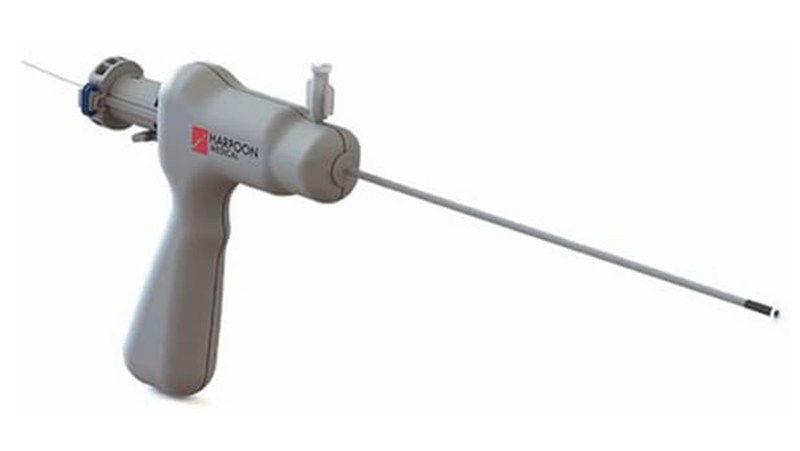Researchers at the University of Maryland Medical Center have created a device that could eliminate the need for open-heart surgery for those suffering from degenerative mitral regurgitation (MR).
The Harpoon TSD-5, built by Harpoon Medical of Baltimore, has a design similar to a spray attachment for a hose, with a long needle at the end of it. It enters the heart through a tiny puncture in a patient’s ribcage that guided to the damaged flaps through echocardiographic imaging.
At that point, artificial cord material can be installed through the damaged flap while the heart is still beating—making a heart-lung bypass machine unnecessary—and tie a knot to keep the cord in place through an automated process. The cord can also be adjusted as the heart beats for the appropriate length.
Degenerative mitral regurgitation is a common heart valve disorder affecting around eight million people in the U.S. alone. It is caused by a leaky heart valve, in which the small cords that control the valve’s flaps are broken or stretched and cause blood to flow in the wrong direction. To repair the valve, invasive open-heart surgery is carried out to replace the small cords in a procedure that requires surgical skill and experience.

The Harpoon TSD-5 can repair broken or stretched cords that control the opening and closing of heart valve flaps without the need for open heart surgery. (Credit: Harpoon Medical)
The Harpoon TSD-5 was put through a clinical study in Poland, where artificial cords were implanted in 11 patients. All patients showed a reduction in MR following surgery and remained in stable condition for the next month.
“We think this approach is applicable to probably three-quarters of patients with degenerative disease, which is the number one reason why people come to the operating room for surgery for mitral valve regurgitation,” said James Gammie, a professor and chief of cardiac surgery at the University of Maryland School of Medicine who served as the principle investigator for the study. “We think this is a safer approach than open heart surgery. We think the safety profile is going to be better and, ultimately, people will be able to go home from the hospital the next day.”
As of now, the device is investigational and not available for commercial use.
For more information on the results of the study done for the Harpoon TSD-5, visit the published Circulation article.




